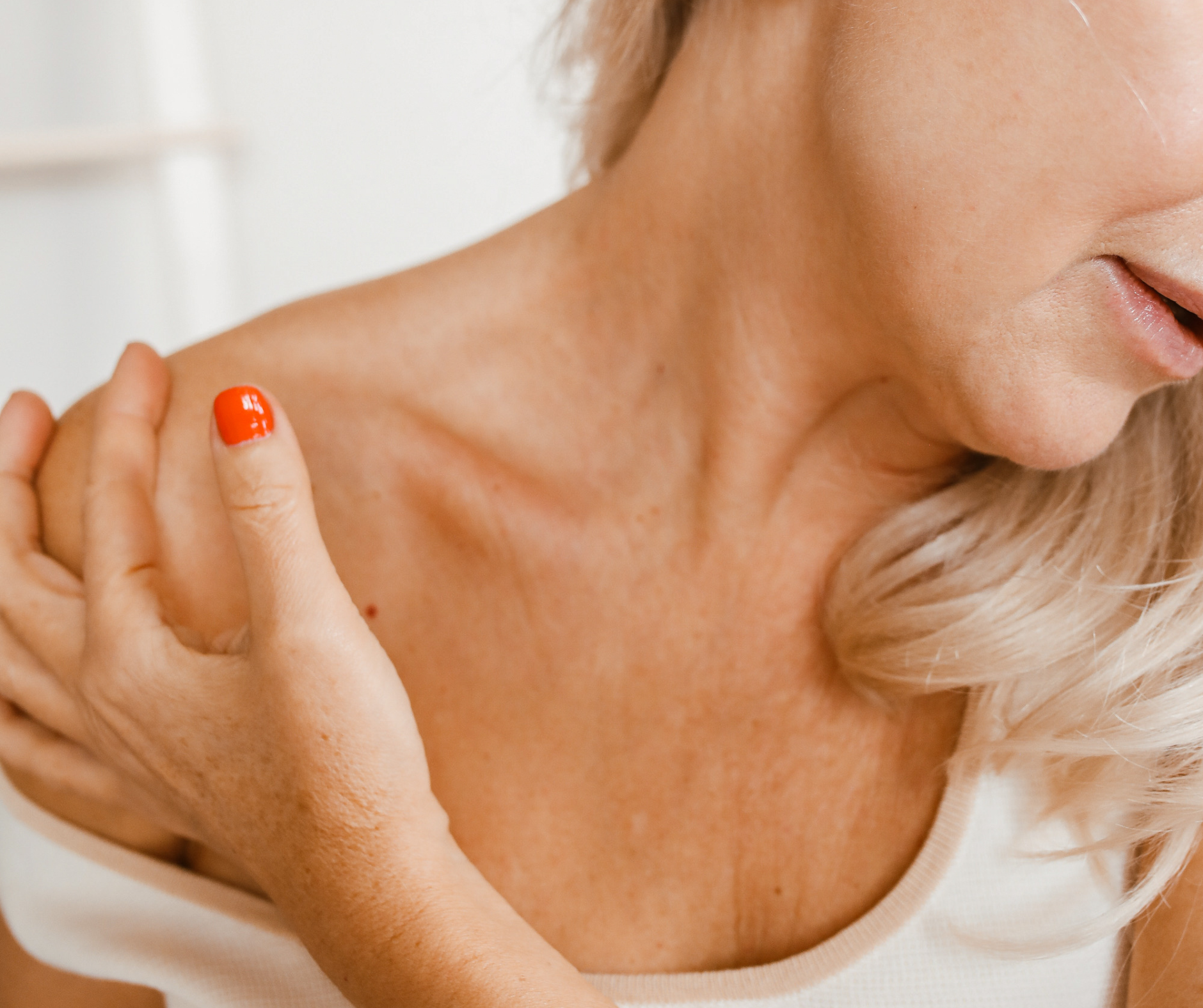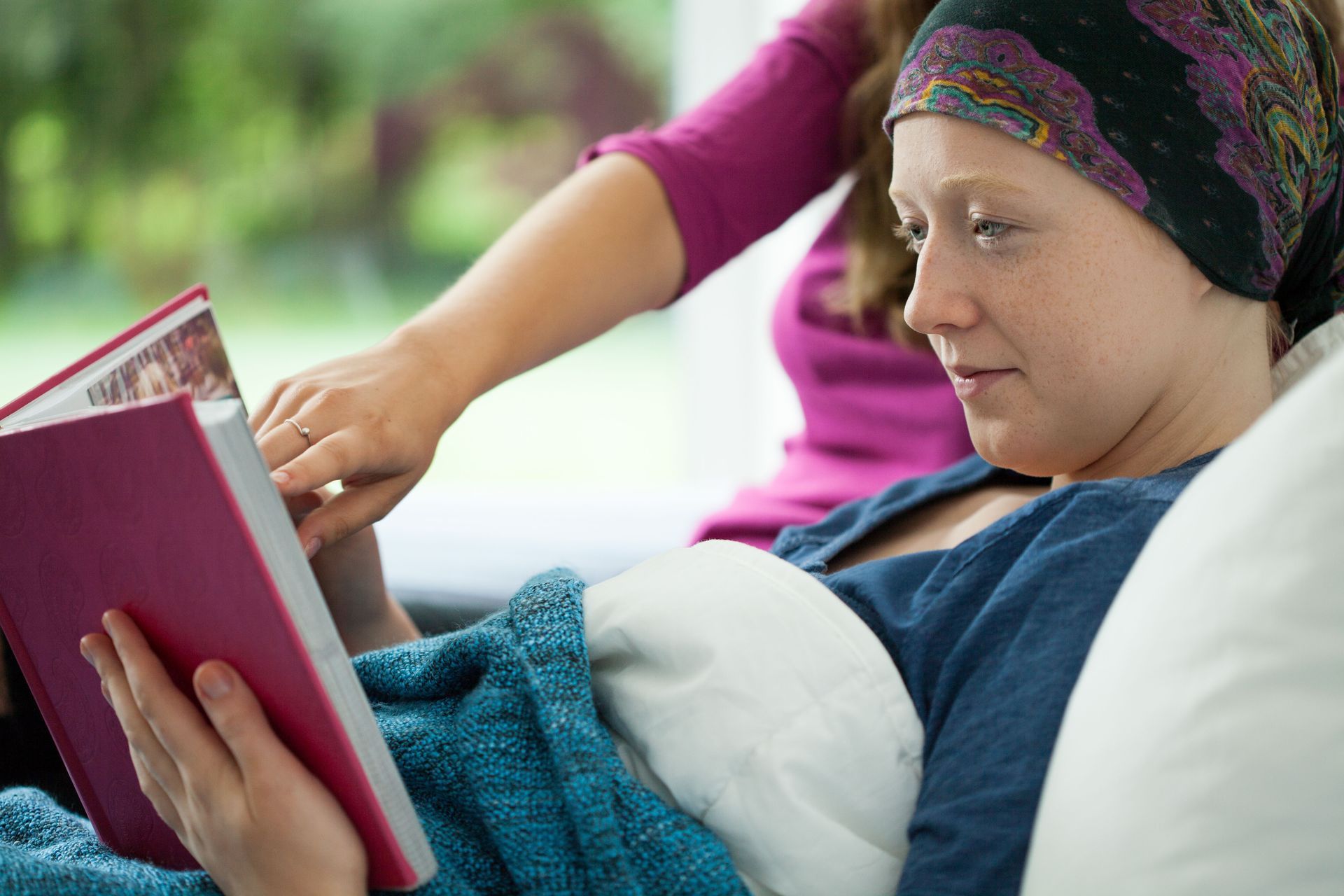Essential Skincare Tips for Sensitive Skin During Cancer Treatments
How the Kureology M.D. Team Can Support Your Skin Throughout Your Healing Journey
Undergoing cancer treatment is an incredibly challenging journey, and along with the physical and emotional toll it takes, many individuals also experience significant changes to their skin. Treatments like radiation can leave skin feeling dry, irritated, and incredibly sensitive. If you're facing these challenges, you're not alone—and there are ways to help your skin feel better while you focus on your healing. In this blog, we’ll walk through essential skincare tips specifically designed for sensitive skin during cancer treatments, so you can take care of yourself inside and out.
At Kureology M.D., we use products specially formulated to support sensitive skin during cancer treatments. With gentle and effective skincare solutions, Kureology M.D. helps promote healing and protect the skin while you're undergoing treatment.
1. Common Skin Issues Caused by Treatments
When undergoing radiation therapy or other cancer treatments, it's common to experience a variety of skin issues. Here are some of the most frequent concerns:
- Dryness and Flakiness: Radiation often dehydrates the skin, leading to uncomfortable dryness, flakes, and rough patches.
- Redness and Irritation: Many people experience redness or heightened sensitivity to touch, products, or even the weather. Radiation therapy can also cause inflammation in the skin.
- Breakouts: Hormonal shifts during treatments can trigger acne and other blemishes, even if you've never experienced them before.
- Peeling and Cracking: As skin becomes drier, it may start to crack or peel, creating additional discomfort and potential for infection.
2. Skincare Products for Sensitive Skin
The right skincare products can make all the difference in managing sensitive skin. Here are some recommendations for what to look for:
- Gentle Cleansers: Choose a fragrance-free, soap-free, non-stripping cleanser to avoid further irritating your skin. Look for hydrating cleansers that help preserve your skin's moisture balance.
- Hydrating Moisturizers: Skin can become parched during treatments, so opt for richer creams, oils, or lotions that deeply hydrate and lock in moisture. Look for ingredients like hyaluronic acid, glycerin, or ceramides.
- Healing Balms: Some specialized products, like calendula or aloe-based balms, are known for their skin-healing properties and can help soothe areas of irritation and inflammation.
- SPF Protection: Skin becomes more susceptible to sunburn during radiation. Always apply a broad-spectrum SPF of at least 30, even on cloudy days or indoors near windows.
For your convenience, the Kureology M.D. team uses products formulated specifically for sensitive skin during cancer treatments. With a focus on gentle, effective skincare, Kureology M.D. products are designed to support your skin through your healing process.
3. Natural Remedies and Things to Avoid
Natural remedies can provide soothing relief, but it’s important to know what’s safe and what should be avoided:
- Aloe Vera: Aloe vera gel is a well-known remedy for soothing irritated or sunburned skin. It’s gentle, cooling, and can help speed up the healing process.
- Coconut Oil: Rich in fatty acids, coconut oil can help hydrate dry skin and provide a protective barrier.
- Avoid Harsh Scrubs and Fragrances: Avoid using harsh physical exfoliants or fragranced products, as they can further irritate sensitive skin.
- Avoid Hot Water: Hot showers or baths can strip the skin of natural oils, exacerbating dryness and discomfort. Stick to lukewarm water instead.
4. Hydration and Moisturization
It’s not just about what you apply to your skin—hydrating your body internally plays a huge role in keeping your skin healthy during treatment. Make sure to drink plenty of water throughout the day to help support your skin’s moisture levels from the inside out.
After a shower or bath, apply a thick moisturizer while your skin is still damp to help lock in moisture. This will give your skin a protective layer and prevent it from becoming too dry.
5. Tips for Preventing Flare-ups
In addition to moisturizing and using the right products, here are a few lifestyle tips to prevent flare-ups:
- Use a Humidifier: Dry indoor air can make skin even more dehydrated. Consider using a humidifier at night to add moisture to the air in your bedroom, especially during the winter months.
- Wear Soft, Breathable Fabrics: Choose soft fabrics like cotton or bamboo that don’t irritate the skin. Avoid tight-fitting clothes that may rub against sensitive areas.
- Pat Your Skin Dry: When you dry off after a shower, gently pat your skin with a towel rather than rubbing it. Rubbing can irritate sensitive skin and cause further damage.
Taking care of your skin during cancer treatments doesn’t have to be another overwhelming task. By using the right products, staying hydrated, and practicing a gentle skincare routine, you can help reduce irritation and keep your skin feeling as comfortable as possible. Remember, you don’t have to navigate this alone—the Kureology M.D. team is here to provide you with the best skincare solutions for sensitive skin during cancer treatments, offering personalized advice and quality products.
If you're ready to give your skin the care it deserves, contact the Kureology M.D. team today for a personalized skincare consultation. Your skin’s health and comfort are our top priority.





Share On: